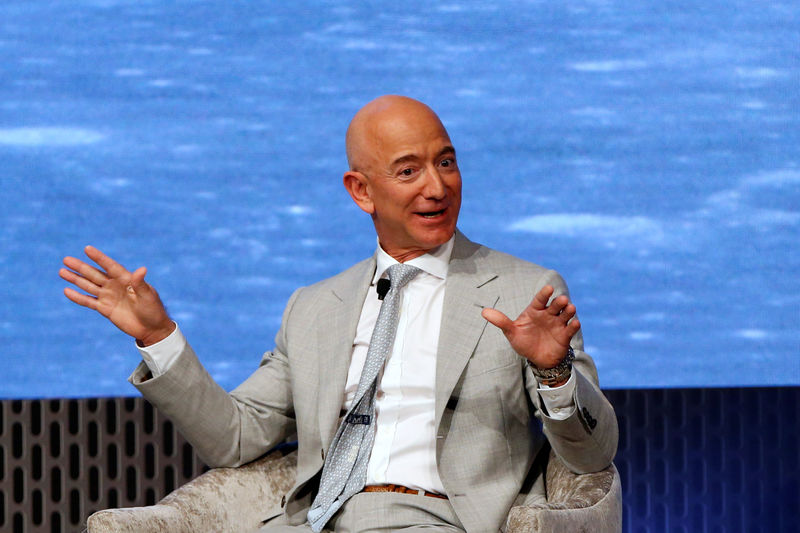By Gregory Scruggs
SEATTLE (Reuters) - Seattle voters, in a rebuke to heavy corporate campaign spending by Amazon.com (NASDAQ:AMZN), have kept progressives firmly in control of their city council, reviving chances for a tax on big businesses that the tech giant helped fend off last year.
Amazon poured a record $1.5 million into a Super PAC run by the Seattle Metropolitan Chamber of Commerce to back a slate of candidates in the Nov. 5 council elections viewed as pro-business, or at least more corporate friendly than the incumbent council majority.
Amazon, the world's leading online retailer whose chief executive is billionaire entrepreneur Jeff Bezos, accounted for more than half of nearly $2.7 million raised by the Super PAC, a group allowed to accept unlimited sums from wealthy donors in support of their favorite candidates. Four years ago, Amazon donated $25,000.
By comparison, labor unions spent more than $1 million on the council race.
The unprecedented level of spending in a Seattle municipal race drew national attention, with Democratic presidential candidates Elizabeth Warren and Bernie Sanders accusing Amazon of trying to buy the council.
The outcome for most of the seven council seats at stake in Tuesday's election was too close to call until Friday night, when a tally of 97 percent of votes cast showed that progressive candidates had won five of the seats, including two incumbents.
One of them was Kshama Sawant, a self-described socialist and Amazon's fiercest critic on the council, whose re-election bid was seen as the bellwether contest.
Just two of the seven candidates endorsed by Amazon and other companies through the chamber's Super Pac emerged winners, one of them an incumbent.
The overall progressive balance of the nine-seat council was little changed. Two other seats come up for re-election in 2021.
HOUSING CRISIS
"The election results are a repudiation of the billionaire class, corporate real estate, and the establishment," Sawant said at a press conference on Saturday, flanked by supporters holding a "Tax Amazon" banner.
Sawant led the council in May 2018 in approving a new per-employee "head tax" on 500 of the city's largest companies, aimed at combating a housing crisis attributed in part to a local economic boom that has driven up real estate costs.
The tax was designed to raise at least $45 million a year to build more affordable housing and help support a homeless population that is the third-largest of any U.S. metropolitan area.
The measure passed the council unanimously, despite threats from Amazon, Seattle's largest employer, to freeze planned expansions in the city.
But just four weeks later, the council repealed the tax altogether in the face of a well-financed campaign by Amazon and other businesses to mount a referendum drive against the measure.
On Saturday, Sawant characterized the latest election as a referendum on the head tax and pledged to pursue the policy with the new council.
Its backers argue that Seattle's biggest businesses should contribute to easing a shortage of low-cost housing they helped create through an over-heated real estate market that left many working poor and middle-class families unable to afford to live in the city.
Opponents have branded the measure a "tax on jobs" that would spark an economic backlash.
Corporate reaction to the election outcome was muted.
"The business community stands ready to work with the new Seattle City Council," the PAC's director, Markham McIntyre, said in a statement on Friday. "How our local government chooses to partner – or create division – matters."
On Wednesday, before the outcome was known, Amazon said it was "pleased with the direction" of the election and looked forward "to working with the new city council, which we believe will be considerably more open to constructive dialogue."
Amazon has since not responded to further requests for comment.
